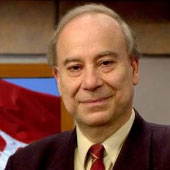U.S. Covert Action in Waziristan (Part I)
What can the United States expect if it conducts more aggressive operations against Al Qaeda in Waziristan?
January 23, 2008
How do you view the U.S. plan to step up its covert activities in Waziristan?
Akbar Ahmed (AA): I hear about plans for U.S. air strikes and special operations and I am speechless. Hasn’t the Bush Administration learned anything from history? Don’t U.S. policymakers read anything at all? It seems they don’t have any memory at all.
What should be the U.S. goal in Waziristan?
America and Waziristan
U.S. Covert Action in Waziristan
Pakistan’s Wild West
Learning from the Past
AA: The key for the United States in dealing with Waziristan is to work through the government of Pakistan to pacify or calm the tribes, get hold of Osama, if indeed he is there, and to make the tribes respond positively to them. The Pakistani government hasn’t succeeded in that.
What makes this situation so tricky?
AA: The people of Waziristan feel that they are the toughest, the noblest, the bravest of the very brave and noble people, the Pashtuns. Their self esteem is very high. They are not intimidated by anyone.
Throughout history, Waziristan has been invaded by empire after empire, and was never subjugated. With that history in mind, the Wazir and Mahsud tribes are very confident.
What is the legacy of American involvement there?
AA: After the Soviet invasion of Afghanistan, the tribal peoples and the peoples of the region — not just the tribal peoples — thought the United States and the Americans were fast friends; and they, together with the Americans, faced a common foe that was the Soviet Union.
They are simple people. They saw Americans as god-fearing — and the Soviets as godless. And they saw the Soviet Union as a bully, a superpower that had charged into Afghanistan and was raping, looting and killing people.
Remember, these people have a great sense of local democracy and fair play. They felt that this invasion had to be resisted. So the tribal areas were enthusiastically sympathetic to the Afghans — not just because they are ethnically akin to the Afghans. In the 1980s, the Americans were popular with the local people.
Did you feel that U.S. intelligence officials at the time understood the people and culture of Waziristan?
AA: Not really. The area was off limits to them and they had no access. It remained a mystery.
What reputation did the CIA and Americans have in Waziristan after the Soviets were expelled?
AA: Initially, Americans had a good reputation. After all, it was because of the Americans, especially the CIA, that the Afghans won the war in Afghanistan. The CIA, working with the Pakistani intelligence, was able to provide weapons to the Afghans and especially the “Stingers” to shoot down the Soviet helicopters. Afghans remember that Ronald Reagan had called them ‘freedom fighters.’
But not long afterwards, Afghans looked at their land and said, ‘My god, look at the devastation, we are destroyed, our homes are destroyed. One-fourth of our people have lost a limb or a leg because of the Soviet’s brutalities. Our homes have been uprooted; there is starvation in parts of Afghanistan.’ And they thought, ‘our American friends will help us.’
But the Americans just walked away. That was the fatal error. When the United States walked away they left a vacuum. The warlords came back, along with local rivalries — and this time the king of Afghanistan was no longer there to act as a unifying force. It was just an implosion of society. In that vacuum, we saw the emergence of the Taliban. In that anarchy and chaos, emerged Osama bin Laden and Al Qaeda and the stage was set for 9/11.
Editors Note: This interview was conducted on January 6, 2008 by Nathan Richter as part of the St. Andrew’s American Century Oral History Project.
You can read Part II here.
Takeaways
Waziristan has been invaded by empire after empire, and was never subjugated.
The people of Waziristan feel that they are the toughest, the noblest, the bravest of the very brave and noble people, the Pashtuns. They are not intimidated by anyone.
These people have a great sense of local democracy and fair play. They felt that the Soviet invasion had to be resisted.
But the Americans just walked away. That was the fatal error. When the United States walked away they left a vacuum. The warlords came back.
Read previous
American Truth Teller
January 22, 2008
